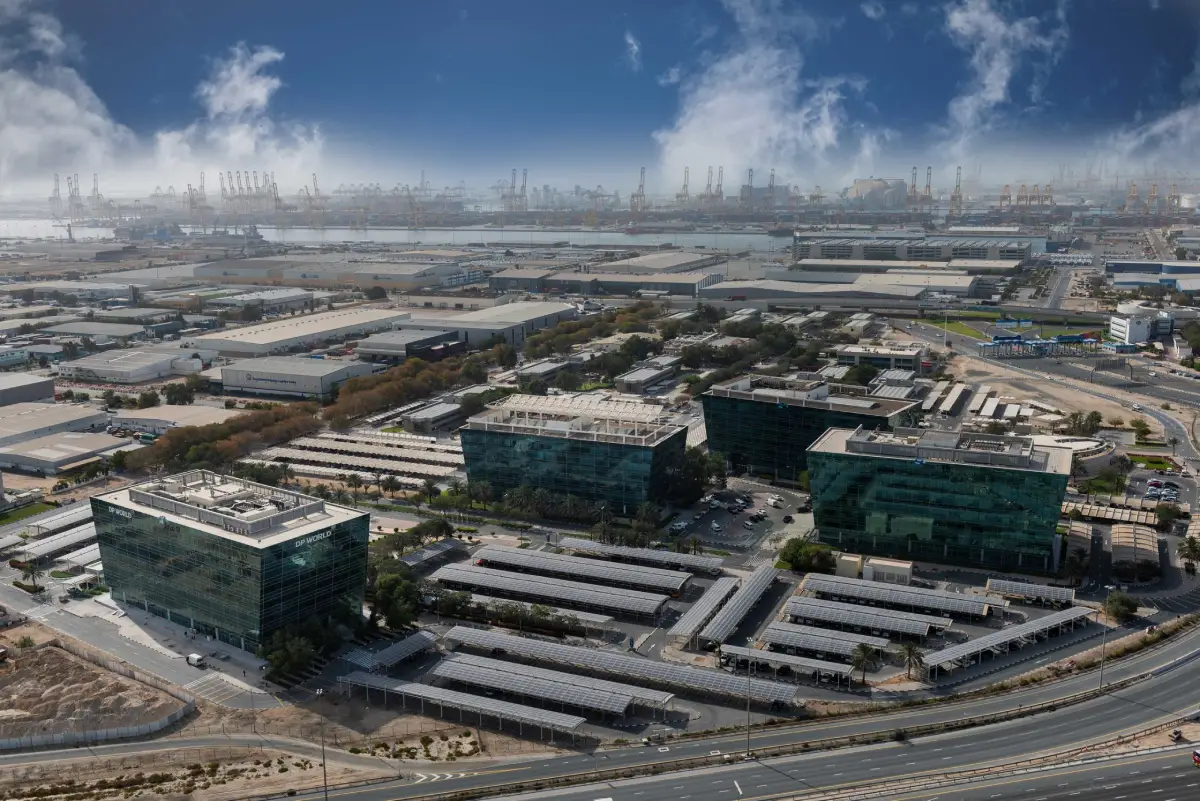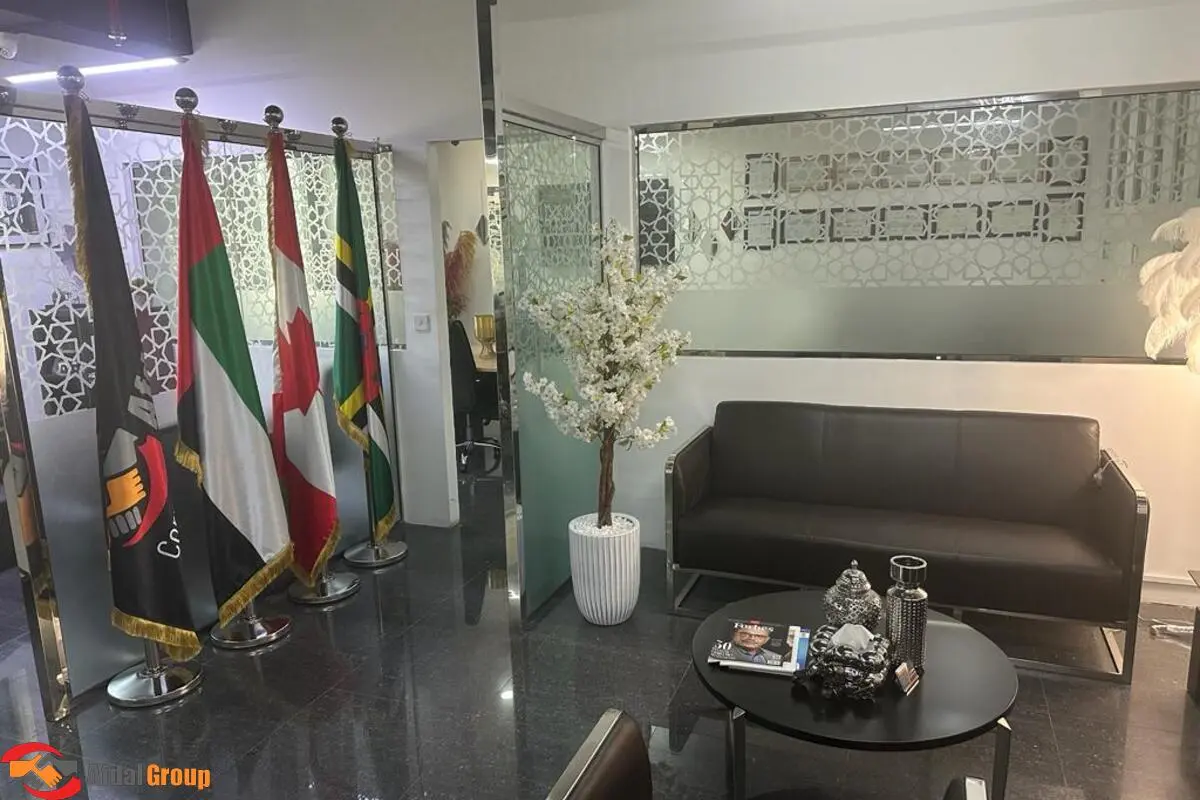Navigating the complexities of Getting a Trading License in the UAE can seem daunting for many aspiring business owners. From understanding the diverse license types to grappling with the legal nuances of setup, the journey is filled with crucial decisions.
This article aims to simplify this process, offering a comprehensive guide that covers everything from the initial application to leveraging the benefits for foreign investors.
Table of Contents
Understanding the Importance of Getting a Trading License in UAE
Securing a trading license is pivotal for legally conducting business within the UAE. It signifies compliance with local laws and regulations, enabling businesses to operate with confidence and legitimacy. This foundational step ensures access to the UAE’s dynamic markets, offering a platform for growth and expansion.
Also read it: Company registration and residency in Dubai
Types of Trading Licenses in UAE
This license is essential for businesses engaged in trading activities such as buying and selling goods. It is applicable across various industries and is the backbone for companies aiming to tap into the UAE’s vast commercial market.
Types of Trading Licenses in UAE
| License Type | Description | Applicable Business Activities |
| Commercial License | Issued for businesses trading goods and services through retail, wholesale, import, or export activities. | General trading, retail shops, import/export companies, distribution agencies |
| Industrial License | It permits businesses to conduct industrial activities such as manufacturing, production, assembly, packaging, or processing goods. | Food processing, manufacturing units, chemical plants, garment factories |
| Professional License | Grants permission for professionals to provide their expertise and consultancy services in specific fields. | Lawyers, accountants, engineers, IT consultants, architects |
| Tourism License | Enables businesses to operate within the tourism sector, offering services like travel agencies, tour operators, hotels, and restaurants. | Hotels, travel agencies, tourist transportation, entertainment facilities |
Industrial License
Designed for manufacturing or industrial activities, this license allows businesses to produce, fabricate, or process goods. It’s crucial for entities looking to establish manufacturing facilities within the UAE to provide a gateway to regional and global markets.
Professional License
This license caters to service providers, professionals, craftsmen, and artisans. It acknowledges the holder’s expertise and permits the provision of professional services like consulting, repairs, or craftsmanship in the UAE.
Tourism License
Tailored for businesses in the tourism sector, this license is mandatory for companies offering travel, lodging, and recreational services. It underpins the UAE’s vision to be a leading global tourism destination, ensuring quality and compliance in the sector.
Also read it: Different types of bank accounts in the UAE and benefits of opening them
UAE Trade License Types
- Broad: Encompassing various activities, allowing businesses to engage in various trade operations under a single license.
- Targeted: Specified for particular activities or industries, offering tailored permissions for specialized business operations.
Getting a Trading License in the UAE and understanding the UAE trade license types are critical steps toward establishing a successful business in the region. Whether opting for a broad or targeted license, companies must navigate the requirements for a UAE trade license, considering the cost of getting a trade license in UAE and the fastest way to get a trade license in UAE.
The choice between a UAE mainland vs free zone trade license offers distinct advantages, particularly for foreigners who might wonder, “Can I get a UAE trade license with a remote business?” Additionally, the process to renew a trade license in UAE, including the associated fees, and identifying the best cities to get a trade license in UAE, are pivotal considerations for both new and established businesses.
Afdal business setup in Dubai provides expert guidance throughout this journey, ensuring a smooth and compliant path to business establishment and operation in the UAE.

The Process of Obtaining a Trading License in UAE
Embarking on the journey of Getting a Trading License in the UAE necessitates a thorough understanding of the step-by-step process established by UAE regulatory authorities. This ensures businesses align with legal requirements and operational standards set within the Emirates.
Step One: Trade Name Registration and Initial Approval
The initial step involves selecting a unique trade name that adheres to the UAE’s naming conventions and obtaining initial approval from the Department of Economic Development (DED). This stage confirms the business name does not infringe on existing trademarks and is suitable for the intended business activities.
Also read it: Real Estate in UAE
- Selecting a Trade Name: Criteria and considerations for naming your business.
- Initial Approval Process: Steps to secure preliminary approval for your trade name and business activities.
Step Two: Memorandum of Association Notarization
Following trade name approval, businesses must draft and notarize a Memorandum of Association (MOA) with the relevant authorities. The MOA outlines the company’s structure, shareholder details, and operational scope, serving as a legal document that underpins the business entity.
- Drafting the MOA: Key components and legal requirements.
- Notarization Process: Where and how to notarize the MOA in the UAE.
Step Three: Submission of Documents
With the trade name and MOA in place, the next step is to compile and submit the required documents to the DED for final approval. This document submission process is critical to obtaining the actual trading license.
- Required Documents: A checklist of documents needed for the trading license application.
- Submission Process: Guidelines for submitting your application to the DED or relevant free zone authority.
Additional Steps to Consider
- Apply for trade license UAE online: Many UAE jurisdictions offer online platforms to streamline the application process, making it easier and faster for entrepreneurs to submit their applications and track their status.
- The fastest way to get a trade license in UAE: Tips and strategies to expedite the licensing process, such as ensuring all documents are correctly filled out and submitted, choosing less crowded jurisdictions, or leveraging express services some authorities offer.
Required Documents for a Trading License in UAE
Securing a trading license in the UAE is a streamlined process, provided applicants are well-prepared with all the necessary documentation.
Also read it: Mainland Business Setup Dubai
The requirements may vary slightly depending on the specific emirate and whether the business is in the mainland or a free zone. Here’s a comprehensive checklist to guide applicants through the preparation phase.
Comprehensive Checklist
- Passport copies: All shareholders and the manager’s passport copies are essential for identity verification.
- Business plan: A detailed business plan outlining the company’s nature of activities, market analysis, and financial projections to demonstrate viability.
- NOC from current sponsor (if applicable): For individuals currently employed or sponsored in the UAE, a No Objection Certificate from the current sponsor is required to engage in business activities.
Costs Associated with Getting a Trading License in the UAE
Understanding the financial implications is crucial when Getting a Trading License in the UAE. The total cost can vary significantly based on several factors, including the license type, the chosen jurisdiction (mainland or free zone), and the specific business activities involved.
Cost Breakdown of Getting a Trading License in the UAE (Mainland)
| Cost Component | Description | Estimated Cost (AED) |
| Initial License Fee | This fee covers the application processing and issuance of the trade license. | 1,000 – 5,000 |
| Name Reservation Fee | Secures your desired business name for a specific period. | 500 – 1,000 |
| Medical Fitness Test | Mandatory medical test for all business owners and visa applicants. | 300 per person |
| Bank Guarantee (Optional) | Some authorities may require it depending on the business activity. | Varies based on company size and activity |
| Visa Processing Fees | Applicable if applying for residence visas for employees. | 3,000 per visa |
| Ejari Registration Fee | Mandatory registration fee for tenancy contracts. | Varies based on office space size and location |
| Business Plan Preparation | Professional assistance with creating a comprehensive business plan (optional). | 5,000 – 10,000 |
Overview of License Fee Structure
The license fee structure in the UAE encompasses both initial costs and recurring fees, ensuring businesses budget accurately for both the setup phase and ongoing operations.
Also read it: Everything About Minimum Investment for Dubai Business Startup
- Initial Costs: These may include the application, initial approval, and name reservation fees. Initial costs provide the groundwork for establishing a legal business presence.
- Recurring Fees: Annual license renewal fees, office lease renewals, and other periodic charges necessary to maintain good standing and compliance within the UAE.
Activity Fees and Other Charges
- Activity-specific fees: Depending on the business activity, certain additional fees may apply, reflecting the need for specific approvals or certifications.
- Office rental fees: A physical presence is often required, and this cost varies by location (mainland or free zone) and the scale of the office space.
- Professional fees: Engaging with Business Setup Consultants in Dubai or legal and financial advisors can incur costs but provides valuable guidance through the setup process.

Benefits of Having a Trading License in UAE
Getting a Trading License in the UAE aligns your business with local regulations and unlocks many opportunities within the region’s thriving markets. This section explores how a trading license can facilitate business operations and the specific advantages it offers, especially to foreign investors.
Legal Compliance and Market Access
Getting a trading license in the UAE is your key to operating legitimately within the UAE. It serves as a foundation for:
- Establishing a business identity recognized by the government and financial institutions.
- Gaining unhindered access to the expansive and diverse markets of the UAE, catering to local and international consumers.
Also read it: VAT Registration in Dubai
This legal acknowledgment enhances credibility and trust among customers and partners, which is crucial for business growth and sustainability.
Benefits for Foreign Investors
- 100% repatriation of capital and profits: The UAE allows foreign investors to fully repatriate their initial investment and subsequent profits back to their home country, providing financial flexibility and security.
- Tax benefits: One of the most enticing aspects of the UAE business landscape is its tax regime. Foreign investors benefit from minimal or non-existent corporate and personal taxes, maximizing profitability and investment appeal.
Overcoming Potential Challenges in Getting a Trading License in the UAE
Securing and Getting a Trading License in the UAE can be straightforward with proper guidance. However, potential challenges may arise due to the intricacies of the UAE’s regulatory environment. Here, we explore common obstacles and offer solutions to navigate these hurdles efficiently.
Common Obstacles and Solutions
- Navigating bureaucracy: The process involves multiple steps and interactions with different government departments, which can be daunting.
- Solution: Engage with a reputable Business Setup Consultant in Dubai who understands the bureaucratic landscape and can streamline the process, ensuring compliance with all legal requirements.
- Understanding local regulations: The UAE’s legal and business regulations can vary significantly between mainland and free zones and among the different emirates.
- Solution: Conduct thorough research or consult with legal experts to understand applicable regulations comprehensively. Tailoring your business plan and operations to meet these requirements is crucial.
Also read it: VAT Filing in Dubai
Maintaining the validity of your trading license in the UAE requires adherence to a set of compliance requirements, ensuring businesses operate according to the highest standards.
- Annual Audits: Certain free zones and mainland authorities may require annual financial audits.
- Regulatory Updates: Stay informed of and comply with UAE commercial laws and regulations changes.
- License Renewal: Regular renewal of your trading license, adhering to the process and timelines specified by the relevant authorities.
Understanding the Role of Free Zones in UAE Trading

The UAE’s free zones are a cornerstone of its economic strategy. They offer a conducive environment for trading and business operations, especially for foreign investors. These designated areas are designed to promote international business through more straightforward regulations and tax regimes.
Popular Free Zones for Setting Up a Business in UAE
| Free Zone | Emirate | Key Features |
| Dubai International Financial Centre (DIFC) | Dubai | Focuses on financial services, wealth management, and fintech businesses. Offers world-class infrastructure and a common law legal system. |
| Dubai Multi Commodities Centre (DMCC) | Dubai | It is ideal for trading commodities like precious metals, diamonds, and tea. It provides excellent logistics facilities and a supportive ecosystem for commodity traders. |
| Jebel Ali Free Zone (JAFZA) | Dubai | It is one of the largest and most diverse free zones in the world. It caters to a wide range of industries, including manufacturing, logistics, and trade. |
| Abu Dhabi Global Market (ADGM) | Abu Dhabi | Emerging financial hub focused on innovation and technology within the financial services sector. Offers a competitive regulatory environment and access to global markets. |
| Sharjah Media City (Shams) | Sharjah | It is geared towards the media and creative industries, including advertising, publishing, and digital media. It provides cost-effective solutions and a supportive environment for media businesses. |
Benefits of a UAE Trade License for Foreigners
Securing and Getting a trading license in the UAE within a free zone presents numerous advantages for foreign entrepreneurs looking to tap into the Middle Eastern markets.
Also read it: Dubai Freezone Company Setup
- 100% Foreign Ownership: Unlike mainland businesses, which typically require a local sponsor, free zones allow foreign investors to retain full ownership of their businesses.
- Tax Exemptions: Businesses benefit from complete exemption from import and export duties, corporate taxes, and personal income taxes.
- Repatriation of Capital and Profits: Free zone entities can repatriate 100% of their capital and profits without restrictions.
- Access to World-Class Infrastructure: Free zones provide access to state-of-the-art facilities, including offices, warehouses, and logistics support, tailored to the needs of trading companies.
These benefits significantly enhance the appeal of getting a trading license in the UAE for foreign investors, providing a streamlined pathway to establishing a regional presence.
Exploring the Scope of Your Getting a Trading License in UAE
In the UAE’s dynamic commercial landscape, understanding your trading license’s scope is pivotal. It dictates the nature of the activities you can undertake and influences strategic decisions regarding location, partnerships, and market engagement.
Broad vs Targeted Trade Licenses
Choosing between a broad or targeted trade license is a strategic decision that hinges on your business model, market goals, and the diversity of activities you plan to undertake.
- Broad Trade Licenses: These licenses allow businesses to engage in a wide range of activities under a single license. They are ideal for businesses looking to explore multiple sectors or those with diversified business models.
- Targeted Trade Licenses: These are tailored for specific activities or industries, providing a focused approach. They are suitable for specialized services or products, allowing for deeper expertise and compliance in niche markets.
Also read it: Visa Services in the UAE
Selecting the right license type is crucial for aligning your business operations with regulatory requirements and market opportunities in the UAE.
Best Cities to Get a Trade License in UAE
- Dubai is renowned for its dynamic market, world-class infrastructure, and business-friendly environment. It offers various free zones catering to various industries, making it a top choice for international trade and e-commerce ventures.
- Abu Dhabi: The capital city, known for its strategic location and robust economic policies, is ideal for businesses in the energy, technology, and cultural sectors. Abu Dhabi’s free zones provide incentives for innovation-driven companies.
- Sharjah: Offers competitive advantages for manufacturing, logistics, and cultural enterprises. With its strategic geographic positioning and focus on industrial development, Sharjah is a cost-effective option for trading businesses.
Conclusion
Through this article, we’ve unfolded the layers involved in Getting a Trading License in the UAE, providing clarity on each step of the journey. We’ve covered the essential milestones from selecting the right license type to understanding the renewal process and embracing the opportunities in free zones.
Also read it: Dubai Tax Essentials: Rates, Exemptions, and Compliance
This guide serves as an informational resource and a roadmap to empower your entrepreneurial aspirations in the UAE. For further insights and personalized guidance, visit Door4Life and explore our blog posts. Your next business success story starts here; we invite your inquiries and discussions in the comments below.
FAQ
How can I get a trade license in the UAE?
To obtain a trade license in the UAE, partner with Trade License Zone, choose business activities, legal form, trading name, apply for initial approval, find a business location, and secure government approvals.
What is the cost of a trading license in Dubai?
The cost typically ranges from 15,000 to 50,000 AED. However, fees may vary based on whether it’s for a free zone or mainland Dubai.
What is the cheapest trade license in the UAE?
The Meydan Free Zone offers the cheapest license from AED 10,000 to AED 13,000, making it an affordable option for entrepreneurs.
Sources:
https://ifza.com/en/industry-analysis/general-trading-license-in-dubai-complete-guide/https://ded.ae/service_details/en/request_produce_new_licensehttps://www.nrdoshi.ae/trade-license-in-dubai-types-procedures-fees-and-renewal/https://spcfz.ae/uae-general-trading-license/https://www.shuraa.com/trade-license-dubai-uae/https://www.commitbiz.com/general-trading-license-in-dubai-uaehttps://www.shuraa.com/general-trading-license-dubai-uae/https://ded.ae/page/en/trade_licensehttps://emirabiz.com/e-trader-licence-dubai/https://www.dubaifreezonecompany.com/auriondubai/general-trading-license-in-dubai.html

